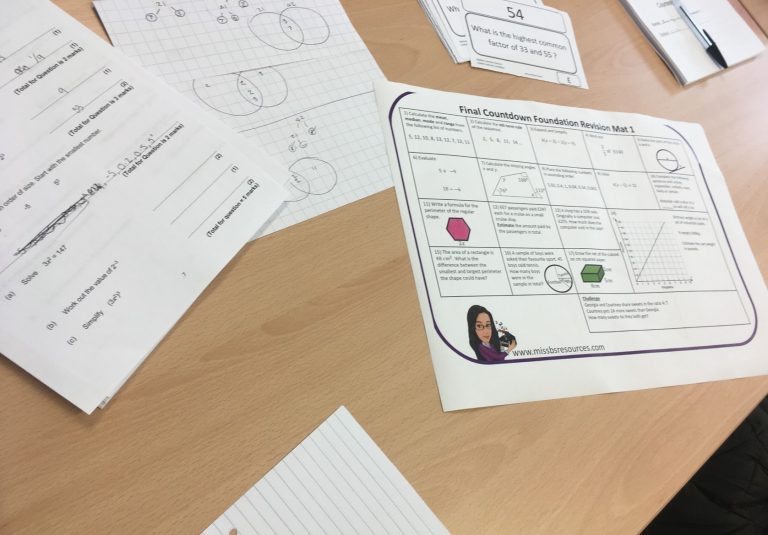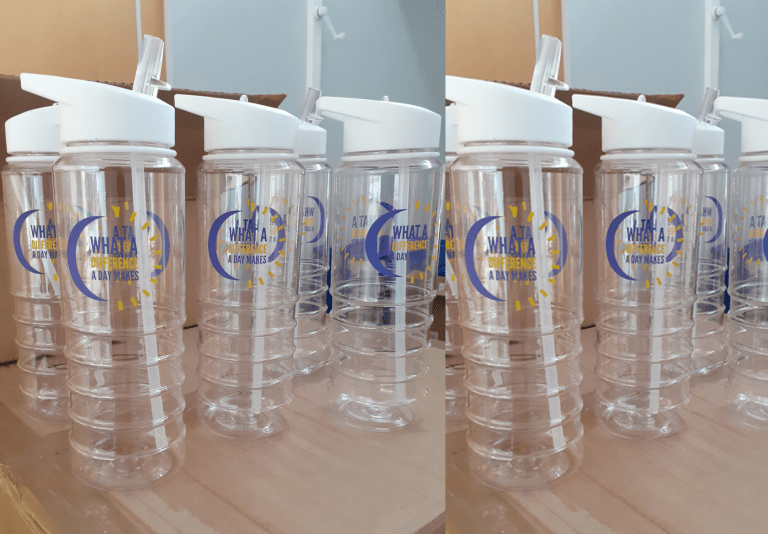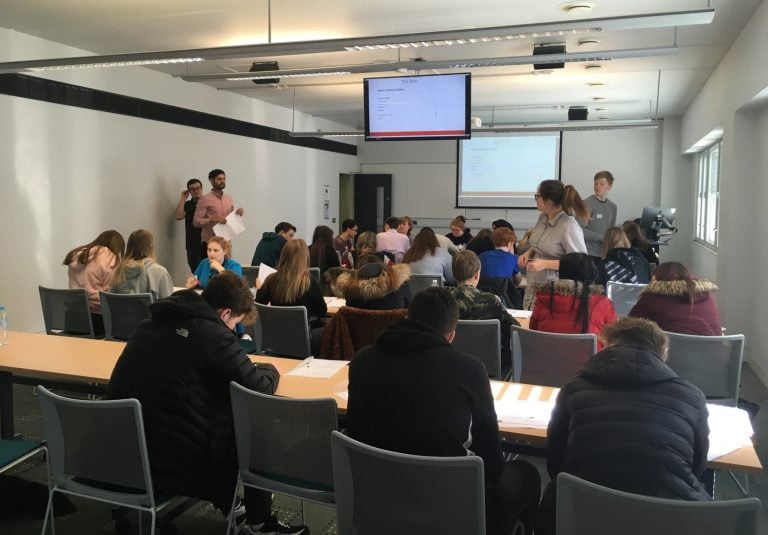A key ingredient to success was the opportunity to access tutoring from new and different teachers at an aspirational venue (UEA).
#250
What A Difference A Day Makes (WADADM)
A short programme of Maths and English interventions to help students prepare for their GCSEs.
Audience
Head Teachers / School Leaders, Local Authorities, Pastoral and Support StaffAimed at
KS4Outcome
Careers & Aspirations, Literacy, Numeracy, Raising Attainment, TransitionApproach
Student/Family SupportWhy was the project needed?
In the Norwich Opportunity Area (NOA), attainment at KS4 was weaker than Norfolk and below the national average, ranking 305 out of 324 districts in 2017. Local stakeholders in Secondary and Further Education told us that too many young people failed to secure a grade 4 or 5 in Maths and/or English GCSE, leading to high numbers of young people needing to re-sit these subjects in Year 12 or 13, where pass rates were poor. The need to re-sit both of these qualifications could often delay students progressing onto and/or sustaining Level 3 study.
What happened and what was the impact?
A short programme of intensive and targeted Maths and English interventions helped students at risk of not achieving Maths and/or English at grade 4 to pass their GCSE.
As a collaborative intervention programme across 8 secondary schools, the NOA set up a short programme of Maths and English tutoring on a Saturday at the University of East Anglia (UEA), designed to support borderline students achieve a grade 4 in their Maths and/or English GCSE.
A programme coordinator was assigned to each of three student cohorts to manage administration, student recruitment and staff payments. Teachers within the NOA were recruited to teach sessions in Maths and English on Saturdays and school holidays at the UEA. Two teachers were appointed as the Maths/English Lead, creating a scheme of work and resources.
Pupils were recruited via the 8 NOA secondary schools, who were asked to target Year 11 students at risk of not achieving a grade 4 or 5 in their English/Maths GCSE in Summer 2019 (and Summer 2020). Schools were asked to prioritise disadvantaged students; however, the definition of “disadvantaged” was broadened to any student who had had extenuating circumstances or challenges during Year 11 – such as mental health issues, bereavement, family break-up etc rather than strictly those in receipt of free school meals.
Pupils were given a “daily” bus pass to travel on the Saturday to the University of East Anglia who provided rooms and student ambassadors to support lessons and give tours of the campus. Students were also given an attendance incentive of £25 as a voucher at the end of the course. A pizza lunch was provided. Pastoral support was put in place as well as tutors, to monitor attendance and wellbeing. In cohort 2, pupils were also invited to nominate a mentor to support them who received course information and tips to support students.
A formal awards ceremony was included at the end of the programme with certificates and medals, and parents were invited. Attendance and feedback were good.
Cohort 3 began in late January and was scheduled to run into April 2020. However, the Covid-19 lockdown period cut the course short, so that only 5 out of 8 sessions were delivered.
Please see the Summer Step Up (Ipswich Opportunity Area) and Autumn GCSE Re-sit (Norwich Opportunity Area) case studies that can be accessed on this page for details of additional WADADM projects carried out.
What did and didn't work?
Participation of target pupils was high with positive feedback and good levels of engagement throughout the programme:
- Cohort 1 – 80 pupils: 51 took English, 50 took Maths and 21 students took both
- Cohort 2 – 49 students registered for English and 66 for Maths
- Cohort 3 – 31 students registered for English and 37 for Maths
Learning from the first cohort, adaptions were made to the programme for the following cohort in 2019-20; trying to target English Language and Literature GCSEs was difficult and the decision was made to refine the English curriculum to English language/literacy only.
Schools asked for earlier sessions so that students who had fallen behind at the end of Year 10 could be supported from September of Year 11, consequently cohort 2 was planned for September 2019 and cohort 3 for January 2020. Teachers told us this represented a challenge in terms of getting buy in from students, with exams still a year away and students less anxious and less willing to participate. Teachers were also less willing to engage with the recruitment process at the end of the academic year.
Students told us they would appreciate more sessions, but not every week, so cohorts 2 and 3 were planned as fortnightly sessions.
Schools told us that while the university setting was very beneficial for many disadvantaged or vulnerable students, it was difficult for them to persuade them to take this step out of their comfort zone, particularly on a bus. A mentoring scheme where students could nominate a family member, friend or teacher to mentor them was introduced in Cohort 2.
How did you measure success?
For cohort 1, student evaluation showed an increase in student reported levels of confidence in both Maths and English. The GCSE pass rate for Summer 2019 (English 73% & Maths 60%) exceeded the pass rate for Norfolk as a whole. This is significant as the WADADM cohort comprised entirely of students at risk of not passing at grade 4.
Wisdom
Ingredients For Success
Is the Project Complete or Ongoing
The NOA funded WADAM project is now complete.
How is the Project Sustainable
During the first half of 2019 the NOA created and implemented a legacy action plan. Secondary headteachers agreed that the WADADM programme should continue and a meeting was organised with reps from the headteacher group and FE/HE and cultural sector providers to see how the intervention could be sustained after NOA funding.
The UEA Outreach programme had an existing outreach portfolio that was a good fit for WADADM, and the Year 11 GCSE intervention programme was transferred to them from September 2020, marking the end of NOA funded delivery for the original model.
What are the Long Term Impacts
We hope that the legacy of the project is that it will continue to have a positive impact on the GCSE attainment levels of Norwich and Ipswich students (see Summer Step Up case study).
Estimated Costs
The NOA provided up to £20,000 per student cohort per programme (across 8 secondary schools).
Everything was perfect! The environment! The people! The teachers and mentors were absolutely astonishing and remarkable! Thank you for this programme!
Feedback from a student involved in the WADADM programme.Area Most Impacted
Careers & Aspirations
Improving Attainment
Next steps to do something similar yourself
These are a list of Big Idea resources that you can use to implement in your setting:
This folder was designed for the students to keep their papers in with WADADM branding:
This flyer was used to market the programme and showcase the tutors:
This flyer was created to recruit mentors to support students on the programme:
Watch this Webinar to learn about targeted approaches to improve GCSE Maths and English attainment:
Read the EEF Guidance Report on Social and Emotional Learning here
Read the EEF Guidance Report on Parental Engagement here
Read the EEF Guidance Report on Improving Behaviour here
Champions and contacts
Authors
Hub Contact Details






If you've got any thoughts and ideas of how this approach could be improved or an positive impact it's had for you, add them below
Login or register now to post any comments